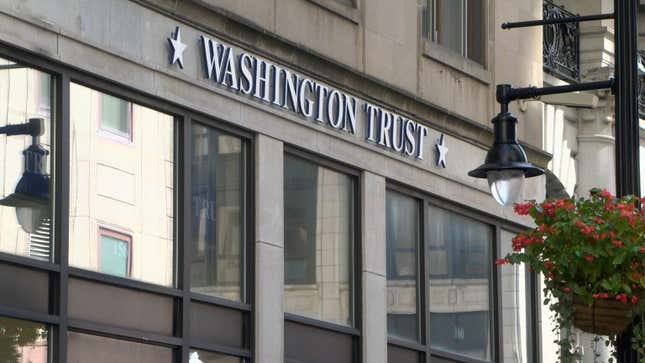
Here at The Root, we’ve previously reported how challenging it is for Black people to secure a mortgage. Recent data has shown that Black mortgage applicants are much more likely to be denied than white applicants. It’s made it much more difficult for Black people across the country to buy property they are interested in. But for some Black people, it may have gotten a little easier.
The Washington Trust Company, a community bank in Rhode Island, recently agreed to pay $9 million after it was accused of being discriminatory in its lending practices. The Justice Department found that the bank did not provide any of its services to Black and Hispanic neighborhoods in Rhode Island from 2016 to 2021, according to the Associated Press.
Black people who don’t live in Rhode Island may be thinking, “How does this affect me?” First, the Washington Trust Company was founded in 1800, making it the oldest community bank in the nation. Secondly, the bank has expanded outside of that state, meaning its discriminatory practices could affect Black people up and down the East Coast.
More from the Associated Press:
Despite expanding across the Rhode Island, the bank never opened a branch in a majority-Black and Hispanic neighborhood, investigators said. It relied on mortgage loan officers working out of only majority-white areas as the primary source for generating loan applications.
The complaint also alleges that, compared to Washington Trust, over the same six-year period, other banks received nearly four times as many loan applications each year in majority-Black and Hispanic neighborhoods in the state.
Despite the settlement, Washington Trust CEO Edward O. Handy III has denied the allegations.
According to the AP, the bank has also agreed to resolutions that will improve its lending practices in the Black and Hispanic neighborhoods that have been ignored for years. One of them is investing $7 million in a loan subsidy fund that will increase access to home mortgages, home improvement, home refinance, etc., for Black and Hispanic residents in Rhode Island.

